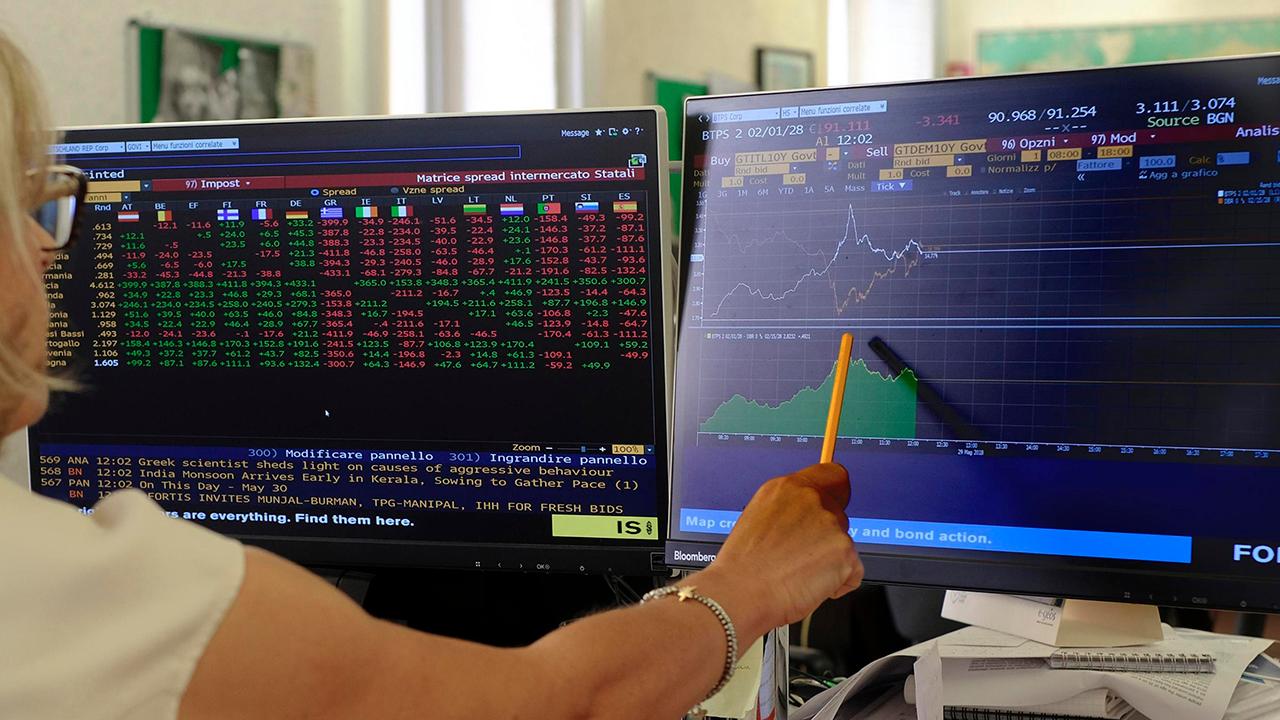Dow leaps 306 points as worries over Italian political turmoil ease
U.S. stocks surged Wednesday, with energy shares a big winner and banks rebounding in response to higher interest rates.
The Dow Jones Industrial Average rose 306.33 points, or 1.26%, to 24,667.78. The S&P 500 jumped 34.15 points, or 1.2%, to 2,724.01. The Nasdaq Composite was up 65.86 points, or 0.89%, at 7,462.45.
Financial stocks, which led Tuesday's retreat, were in the vanguard of Wednesday's advance as rising Treasury yields gave the sector a boost. The yield on the benchmark 10-year Treasury note climbed above 2.8%.
Oil surged more than 2% to $68.21 per barrel, ending a five-day selloff and lifting energy companies.
Small-cap stocks benefited from trade uncertainty, with the Russell 2000 up more than 1% and hitting an all-time high. The Dow and S&P 500 notched their biggest one-day percentage gains since May 4.
Before the market opened Wednesday, the government reported that U.S. economic growth slowed slightly more than expected in the first quarter because of downward revisions to inventory investment and consumer spending. In addition, American businesses added 178,000 jobs in May, according to a private survey, below the average monthly gains accumulated over the winter.
| Ticker | Security | Last | Change | Change % |
|---|---|---|---|---|
| DKS | DICK'S SPORTING GOODS | 202.77 | -0.08 | -0.04% |
The Federal Reserve said in its Beige Book report that the economy expanded moderately in late April and early May with few shifts in the pattern of growth.
Dick's Sporting Goods rallied after reporting surprisingly strong quarterly profit and sales. Shares soared more than 25% as the company raised its guidance, easing fears that new gun policies would hurt sales.
| Ticker | Security | Last | Change | Change % |
|---|---|---|---|---|
| I:DJI | DOW JONES AVERAGES | 49395.16 | -267.50 | -0.54% |
| SP500 | S&P 500 | 6861.89 | -19.42 | -0.28% |
| I:COMP | NASDAQ COMPOSITE INDEX | 22682.729157 | -70.91 | -0.31% |
The gains Wednesday reversed Tuesday's losses, which stemmed from concerns that a populist government in Italy could attempt to stop using the euro, something that would destabilize European markets and, likely, affect U.S. equities.




















